Market Share
Introduction: Navigating the Competitive Landscape of RFID Tags
The market for RFID tags is going through a period of tremendous change, due to the fast development of the technology, the emergence of a new regulatory framework, and the increased expectations of consumers for transparency and efficiency. Competition is fierce, with many players, including original equipment manufacturers, system integrators and technology suppliers, competing to be the first to exploit new developments in the area of artificial intelligence and the Internet of Things. These innovations will not only improve operational efficiency but also enable real-time data analysis. And they will separate the leaders from the followers. The market is being shaken up by agile start-ups that are focusing on biometrics and green IT. These start-ups are able to respond quickly to new developments, and are already deploying their solutions in Asia-Pacific and North America, which are expected to be the fastest-growing markets. The strategic deployment of solutions is increasingly being driven by a focus on automation and energy efficiency. The ability to understand the competition and the technological drivers will be crucial for C-level managers and strategic planners seeking to exploit the opportunities in the market for RFID tags.
Competitive Positioning
Full-Suite Integrators
These vendors offer comprehensive RFID solutions, integrating hardware, software, and services for end-to-end deployment.
| Vendor | Competitive Edge | Solution Focus | Regional Focus |
|---|---|---|---|
| Avery Dennison | Strong brand recognition and innovation | RFID tags and inlays | Global |
| Honeywell | Robust supply chain solutions | RFID hardware and software | North America, Europe |
| Zebra Technologies | Comprehensive data capture solutions | RFID printers and readers | Global |
Specialized Technology Vendors
These vendors focus on specific RFID technologies or applications, providing niche solutions tailored to particular industries.
| Vendor | Competitive Edge | Solution Focus | Regional Focus |
|---|---|---|---|
| Impinj | Leading in RAIN RFID technology | RFID readers and software | Global |
| Alien Technology | Innovative tag designs and performance | RFID tags and inlays | Global |
| Confidex | Durable tags for harsh environments | Specialized RFID tags | Global |
Infrastructure & Equipment Providers
These vendors supply the necessary infrastructure and equipment to support RFID systems, including readers and antennas.
| Vendor | Competitive Edge | Solution Focus | Regional Focus |
|---|---|---|---|
| NXP Semiconductors | Advanced semiconductor technology | RFID chips and readers | Global |
| STMicroelectronics | Strong focus on IoT integration | RFID chips and solutions | Global |
| TagMaster | Specialization in vehicle identification | RFID readers and tags | Europe, North America |
| Cimtec | Custom solutions for industrial applications | RFID systems and integration | North America |
| Hexagon AB | Focus on geospatial solutions | RFID for asset tracking | Global |
| RFID Global Solution | Expertise in RFID consulting | RFID implementation services | North America |
| Smartrac | Innovative inlays and tags | RFID inlays and tags | Global |
| Dai Nippon Printing | Diverse printing capabilities | RFID labels and tags | Asia, Global |
Emerging Players & Regional Champions
- Avery Dennison (US): This company specializes in the production of RFID inlays and labels for the retail and supply chain industries. It has teamed up with major retailers to offer inventory management solutions and complements the leading vendors by offering cost-effective and inventive solutions.
- Impinj (USA): Focuses on RAIN RFID solutions, recently secured contracts with logistics companies to enhance tracking capabilities, challenging established players by providing advanced data analytics and integration with IoT.
- SML Group (Hong Kong): Offers a wide range of RFID tags and labels, recently implemented solutions for a large fashion retailer, complements established vendors by providing customizable and scalable solutions tailored to specific industry needs.
- Confidex (Finland): Known for high-performance RFID tags for industrial applications, recently expanded its offerings to include smart city solutions, challenging traditional vendors by entering new markets with innovative technology.
- Zebra Technologies (USA): Provides RFID solutions for healthcare and retail, recently launched a new line of RFID printers, complements established vendors by enhancing the user experience with integrated solutions.
Regional Trends: In 2024, the RFID tags market is expected to grow significantly in North America and Asia-Pacific, driven by the increased adoption in the retail, logistics, and health care industries. The use of new technology such as RAIN RFID and NFC will help companies improve their inventory management and tracking capabilities. And the integration of RFID with the Internet of Things and big data analysis will help companies to gain insights into real-time data and improve their operations.
Collaborations & M&A Movements
- Zebra Technologies and Avery Dennison entered a partnership to develop advanced RFID solutions aimed at enhancing inventory management for retail businesses, thereby strengthening their competitive positioning in the retail sector.
- Impinj acquired the RFID technology division of NXP Semiconductors in early 2024 to expand its product offerings and increase market share in the IoT space, positioning itself as a leader in RFID solutions.
- Alien Technology and Smartrac collaborated to create a new line of eco-friendly RFID tags, responding to increasing regulatory pressures for sustainable practices in the packaging industry.
Competitive Summary Table
| Capability | Leading Players | Remarks |
|---|---|---|
| Biometric Self-Boarding | Zebra Technologies, Impinj | The combination of biometrics and RFID enables boarding to be performed more quickly and securely. Impinj’s products enable rapid integration with existing biometric systems. |
| AI-Powered Ops Mgmt | Avery Dennison, Alien Technology | Artificial intelligence is used by Avery Dennison to optimize the supply chain and reduce waste in retail. Artificial intelligence provides a real-time insight into the supply chain and improves the decisions made in the supply chain. |
| Border Control | Savi Technology, Nedap | The Savi RFID solutions provide real-time monitoring of the movement of people and goods at airports. This is where the efficiency of the border control systems of Nedap can be increased by combining RFID with a comprehensive screening of people and goods. |
| Sustainability | Smartrac, Confidex | Smartrac has focused on the use of eco-friendly RFID tags made of recycled materials, thereby promoting the principle of sustainable supply chains. Confidex has developed tags that are less harmful to the environment without compromising performance, thus demonstrating its commitment to green technology. |
| Passenger Experience | RFID Journal, Tageos | RFID Journal presents a number of examples where RFID has improved the passenger experience, with faster check-ins and baggage tracking. Tageos offers a number of RFID solutions to enhance customer engagement and improve efficiency in the retail and travel industries. |
Conclusion: Navigating the RFID Tags Competitive Landscape
In the years approaching 2024, the RFID tags market is characterized by intense competition and notable fragmentation, with both established and new companies vying for market share. Regionally, the trend is towards a growing use of RFID tags in Asia-Pacific and North America, driven by improvements in supply chain management and the need to track inventories. The strategic challenge for vendors is to establish a position for themselves in terms of the AI, automation, and flexibility of their solutions. New companies are focusing on innovation in the form of new, flexible, and sustainable solutions, while the established players are focusing on enhancing their existing solutions with new technological features. The ability to combine these features will be the key to success in this developing market, as decision-makers seek to find a supplier who can not only optimize efficiency but also provide long-term value.

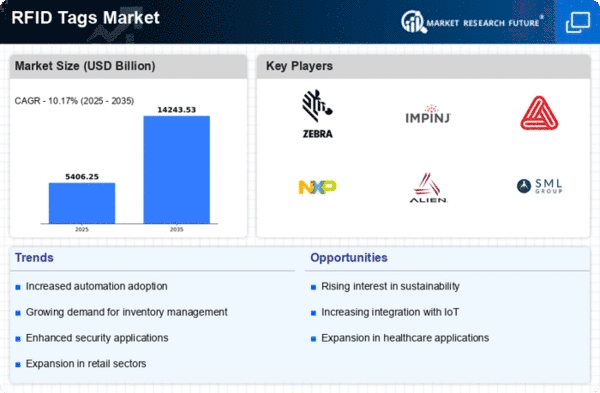
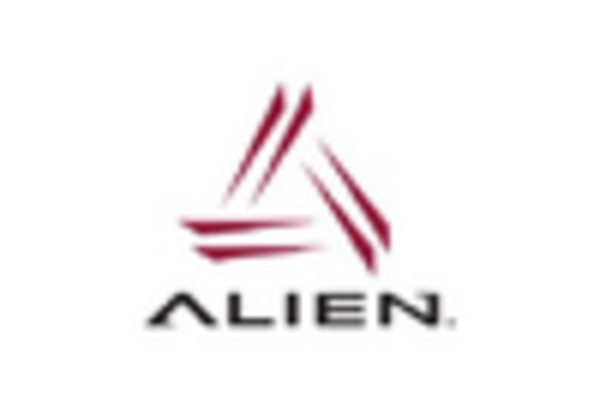
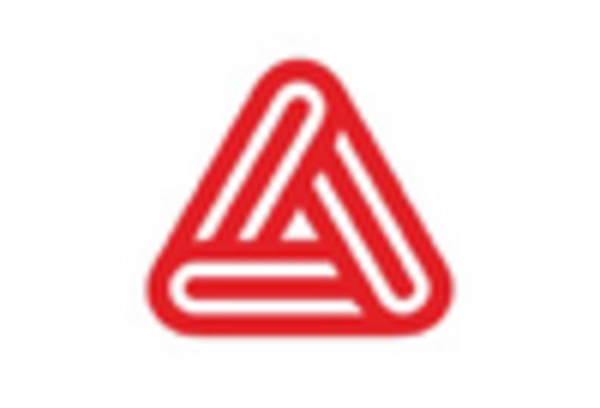
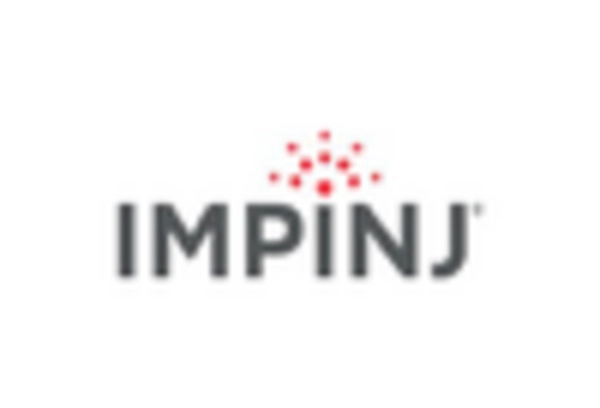
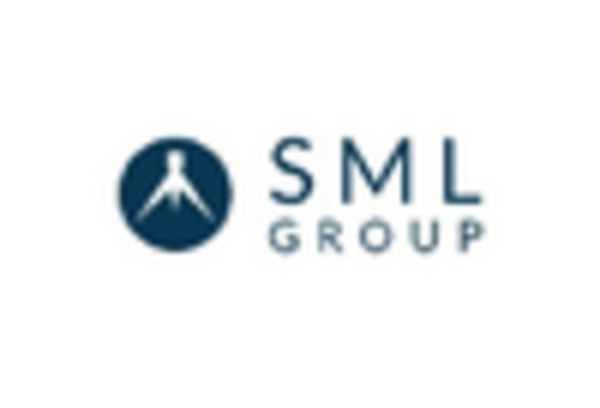











Leave a Comment